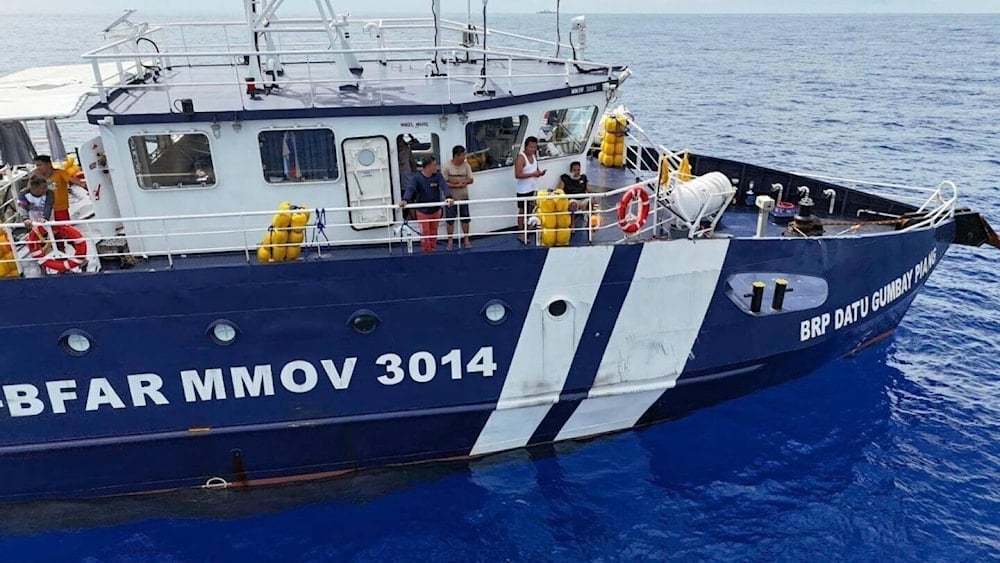China blames Philippines for South China Sea collision
Beijing and Manila trade blame over a naval incident near Thitu Island in the South China Sea, escalating tensions in the Spratly Islands dispute.
-

In this photo provided by the Philippine Coast Guard, a Filipino fisheries vessel, the BRP Datu Gumbay Piang, is seen in the South China Sea on September 16, 2025. (Philippine Coast Guard via AP)
China has blamed the Philippines for a maritime incident in the South China Sea, where Manila accused a Chinese coast guard vessel of ramming one of its government ships near Thitu Island on Sunday.
Beijing's coast guard stated that the Philippine vessel had entered waters near Sandy Cay, ignoring repeated warnings and dangerously approaching the Chinese ship. "Full responsibility lies with the Philippine side," said coast guard spokesman Liu Dejun in an online statement.
The South China Sea collision, which occurred around 9:15 am local time (01:15 GMT), adds to the growing list of flashpoints in the Spratly Islands dispute, a region Beijing claims nearly in its entirety, despite a 2016 international tribunal ruling rejecting its claims.
Philippines reports water cannon, collision
According to the Philippines’ Bureau of Fisheries and Aquatic Resources, the vessel BRP Datu Pagbuaya was first targeted by a Chinese water cannon before being deliberately rammed at the stern, causing minor structural damage but no injuries to crew members.
Photos and video released by the Philippine Coast Guard appear to show a Chinese coast guard ship pursuing and firing water at the Philippine vessel during the incident.
In response, the Philippine Coast Guard stated, “Despite these bullying tactics and aggressive actions... we will not be intimidated or driven away.”
The Philippines-China standoff has intensified in recent months, with frequent confrontations at sea. The latest Thitu Island confrontation highlights the fragile and volatile situation in one of the world’s busiest and most disputed maritime routes.
China: Philippines 'playing with fire'
Last month, the Chinese military warned the Philippines against provocations following routine patrols it conducted in the South China Sea on September 14.
A Chinese military spokesperson said the Philippines must "immediately stop provoking incidents and escalating tensions" in the South China Sea. "We sternly warn the Philippine side to immediately stop provoking incidents and escalating tensions in the South China Sea, as well as bringing in external forces for backing such efforts that are destined to be futile," the spokesperson stated.
"Any attempt to stir up trouble or disrupt the situation will not succeed," he emphasized.
Additionally, China accused the Philippines of "playing with fire" after President Ferdinand Marcos Jr. said the Southeast Asian nation would inevitably be drawn into any conflict between China and the United States over Taiwan.
The comments on August 8, made during Marcos' state visit to India, cited the Philippines' geographical proximity to Taiwan and the large Filipino community living there as reasons the country could not remain on the sidelines in such a scenario.

 3 Min Read
3 Min Read










